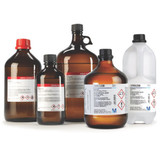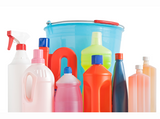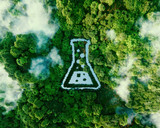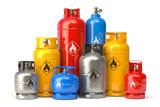Blog Post Archive
Commonly used Acids in the Laboratory
Common acids used in the lab include Hydrochloric Acid, Sulfuric Acid, Nitric Acid and specialty acids. They're typically designated by grade or purity, such as Technical Grade, USP Grade, ACS Reagent Grade, Ultra-Pure, Environmental Grade, Electronic Grade, etc.
Commonly used Inorganic Acids
Hydrochloric Acid
Sulfuric Acid
Nitric Acid
Phosphoric Acid
Boric Acid
Hydroiodic Acid
Phosphotungstic Acid
Hydrofluoric Acid
Periodic Acid
…
18th Aug 2022
What are Detergents and Surfactants?
Detergent is a broad term for chemical compounds that are amphipathic-that is they possess different segments-one that is hydrophobic (water-hating) that can sink into and break up fats and grease- and one part that is hydrophilic (or water-loving) and can be hydrated by water. The hydrophobic part absorbs into a contaminant lifting it out while the hydrophilic part allows it to dissolve into water, removing the contaminant, stain or dirt. Soaps as detergents are generally made from plant or
…
17th Aug 2022
Wildfire Smoke and Your Health
For the past two years, we’ve been hearing a lot about the possible effects of COVID-19 on our long term health. It is important not to forget that there is another looming threat to our respiratory and cardiac health, and that threat is smoke from wildfires. Lung and heart health issues are not the only thing that COVID-19 and wildfires have in common, the risks from both can be limited with proper protection. In these time we unfortunately have to live with a lot of precautions. Fire
…
31st May 2022
10 Ways to Make Your Lab More Sustainable
Laboratories consume 10 times more energy and four
times more water than a commercial office space, as well as producing around 6.1
tons of plastic waste annually. The good news is, scientists have a great deal
of control over reducing waste and water and energy consumption. Here are a few
best practices you can use to start practicing sustainability in the lab today.
1. Use an ECO FunnelIf you know us, then you know ECO Funnel. It’s the easiest
way to keep solvent waste contained i
…
21st Apr 2022
Safe Gas Cylinder Storage and Handling Tips
Improper handling and storage of gas cylinders can result in serious injury or death. Cylinders can have an internal pressure of
up to 2500 pounds per square inch, and it must be ensured that they are stored and handled in a way that prevents dropping, tipping or
catching fire. CP Lab Safety has everything you need to meet regulations and prevent
such disasters. For more information on OSHA requirements for gas cylinder handling,
visit OSHA Compressed Gases General RequirementsStorage T
…
22nd Mar 2022





